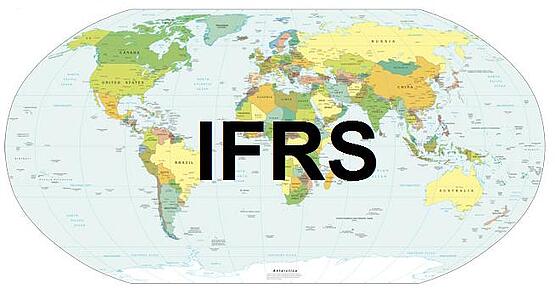In our view, companies are best served when they take an integrated approach to build an IFRS framework. Toward that end, they need a fully integrated solution ideal for supporting the IFRS adoption. A key element is the ability of enterprise applications to work in conjunction with financial management ones to meet a wide range of accounting requirements and processes mandated by the International Financial Reporting Standards.

Financial management solutions should provide specific support for the requirement of companies reporting in both IFRS and VAS. By supporting multiple charts of accounts, fiscal calendars, and accounting currencies, they should deliver fully automated capabilities to comply with multiple accounting practices. The ability to have multiple representations of core financial data will make it possible to understand the impact of IFRS adoption on their businesses without imposing a significant burden on the financial teams.
Here are some capabilities that enterprise solutions should have to cater for specific IFRS requirements:
Financial statement presentation. They should provide the flexibility to present financial statements in multiple formats, use multiple currencies and exchange-rate scenarios, and use flexible accounting group headings.
Segment reporting. They should allow companies to record and report information for segments using a variety of dimensions, including geography, service, and product. They should also enable multiple views into operational performance and multiple versions of the same structure, including budgets, targets, and actual results.
Foreign currency transactions. To comply with the IFRS requirement that companies report the effect of foreign exchange rates, they should have the capabilities to specify by account and/or statement which currency and exchange rate sets apply.
Minority interests. They should enable consolidation adjustments such as share of associated entity profits, minority interests, and intercompany and recurring adjustments. They should also dynamically book journal entries at the proper proportional value for subsidiaries and generate full audit trails on adjustments.
Financial reporting in hyperinflationary economies. They should provide built-in currency intelligence that eliminates time-consuming and error-prone manual conversion processes. They should also support consolidation using multiple sets of exchange rates for multiple currencies and enable a company to track information in a business unit’s local currency, functional currency, and reporting currency.
Discontinuing operations. They should provide analytical tools and support for multi-organisation structures to show the consolidated effect of the disposition.
Multiple reporting requirements. They should support a variety of consolidation and reporting processes within the application, and simplify data collection from multiple remote transaction systems and charges of accounts.
Electronic output of financial and business data. They should support interactive data “tags” for all items in financial reports. This tagging allows companies to immediately capture the exact information they want and compare it in an electronic format to the results of other companies, performance in past years, and industry averages.
***
For an overview of IFRS and its significance towards Vietnamese Accounting Standards, download the full white paper “FROM VAS TO IFRS: Building business efficiencies and greater competitiveness for Vietnamese companies”.
 English
English  Vietnamese
Vietnamese 

